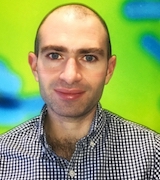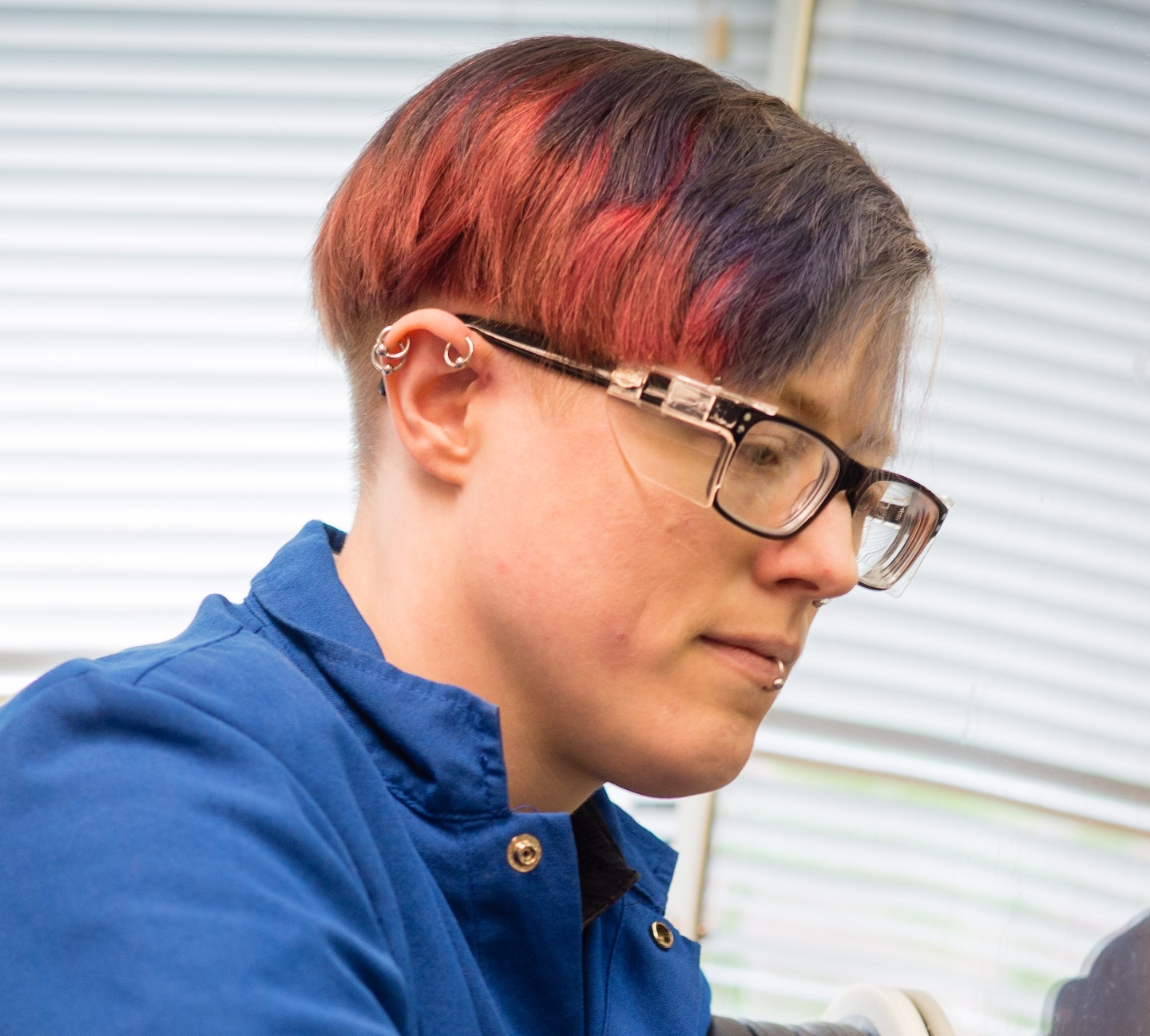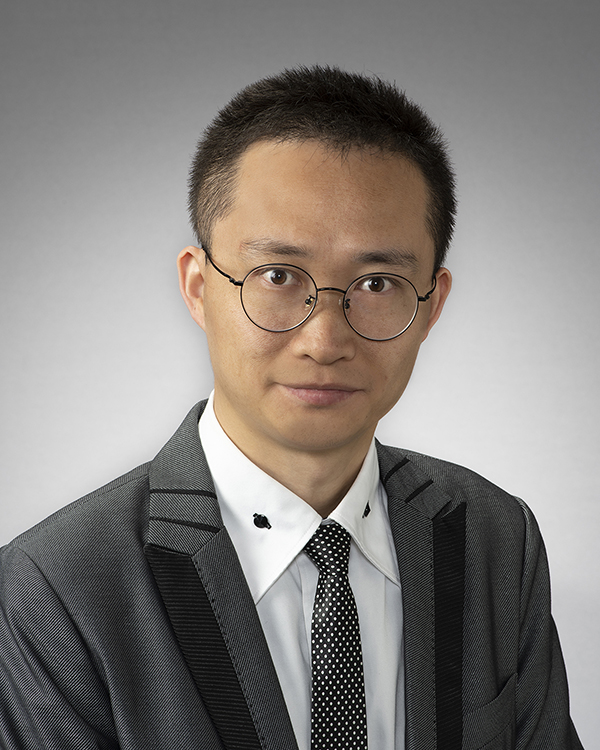Fritz Roth
Assessing the impact of human variation on protein structure, dynamics, function and disease, and the dependence of variant impact on environment and genetic context.

My research team develops and applies both experimental and computational technology, launching spectacular multidisciplinary scientists. The lab’s primary research focus is on generating comprehensive experimental maps of functional sequence variation (‘variant effect maps’) and establishing their clinical utility. To date, we have generated variant effect maps for over 20 human proteins, using highly-multiplexed cell-based assays (often under multiple environments, genetic contexts or using distinct functional assays). For each of these projects, there is a major computational modeling component, e.g. molecular dynamics. We also developed VARITY, among the current top predictors of pathogenicity for rare human missense variants. Another focus with both experimental and computational aspects is the systematic discovery of protein interactions, applying massively-multiplexed interaction assays enabled by next-generation sequencing under different interaction conditions to understand the regulated dynamics of protein interaction.
Education
1986 – 1990 Univ. of California, Berkeley, BA 1990, Physics and Molecular & Cell Biology
1992 – 1998 Harvard University, PhD 1998, Biophysics
Dr. Chris Sander’s group at Millennium Pharmaceuticals (now Takeda)
Department of Computational and Systems Biology
University of Pittsburgh School of Medicine
3420 Forbes Avenue, Murdoch Bldg Rm 835
Pittsburgh, PA 15260
Office: 412-648-3333
fritz@pitt.edu
Website link: https://rothlab.csb.pitt.edu/
Kevin McCarthy
Virus host coevolution, antibodies, viral glycoproteins, vaccines and emergining diseases.

The McCarthy laboratory studies the co-evolution of viruses and their hosts, using genetic, molecular, biochemical, and structural approaches. Among the proteins that form an enveloped virus, the glycoproteins often evolve most rapidly. They drive cell entry and in doing so profoundly influence viral tropism. Viral glycoproteins evolve to evade host antibody responses, adapt to utilize new receptor molecules and transmit between species. When captured by host genomes, they have been adapted to perform host functions. Their plasticity hinders vaccine development, facilitates viral emergence, and can highlight unique biology. In a sense, they have evolved to evolve.
B cells rearrange their DNA to produce novel B cell receptors. They then evolve these receptors to bind antigens with greater affinity, a process termed affinity maturation, and secrete those receptors as antibodies. B cells receptors, like viruses, have evolved to evolve.
Using the glycoproteins from influenza (hemagglutinin), SARS-CoV-2 (spike) and retroviruses (envelopes) we are currently focused on:
- Understanding how the antibody response to viral glycoproteins evolves
- Determining how immune pressure from antibodies drives viral evolution
- Defining how viral glycoproteins captured in the genome contribute to host evolution
Education
BS, 2008, Biochemistry, Stony Book University
PhD, 2014, Virology, Harvard University
Postdoctoral Training 2014-2020, Harvard Medical School, Advisor: Dr. Stephen C. Harrison
Center for Vaccine Research
9044 BST3
3501 Fifth Avenue
Pittsburgh, Pennsylvania 15261
krm@cvr.pitt.edu
412-624-3235
F: 412-624-4440
Website link: https://mccarthylab.org/
Grace Kenney
Structures, mechanisms, and biological roles of new classes of microbial enzymes and microbial natural products

Even in the best-studied microbes, a significant proportion of the proteins and pathways remain unidentified and unstudied. Research in the Kenney Lab focuses on the elucidation of this unexplored microbial chemistry, particularly the structures and mechanisms of new classes of enzymes and natural products. One major area of interest is the identification of new types of metalloenzymes that are involved in the production of secondary metabolites. A second area of interest is the biosynthesis of peptidic natural products. A final area of interest involves the identification of natural products with roles in microbial metal homeostasis in complex environments.
Our research is interdisciplinary and draws on a wide range of techniques. We use bioinformatics and other computational approaches to identify and prioritize interesting biochemical systems, and to model enzyme structure and reactivity. Natural products are identified and characterized using mass spectrometry and NMR; when investigating enzyme mechanism, this is supplemented by various spectroscopic techniques, the use of substrate analogs, and other structural, biophysical, and bioinorganic techniques as needed. In vivoexploration of these microbial systems can include ‘omics, genetic manipulation of microbes, and other methods for analyzing changes in phenotype and metabolism on the cellular level.
Education
-
S.B.: 2007, Chemistry, MIT
Ph.D.: 2017, Biological Sciences, Northwestern University (in the laboratory of Dr. Amy C. Rosenzweig)
Postdoctoral Training: 2023, Harvard University (in the laboratory of Dr. Emily P. Balskus)
Department of Chemistry
219 Parkman Ave.
6th floor, Chevron Science Center Annex
Pittsburgh, PA 15260
Office phone: 412-383-2264
Lab phone: (not yet available)
Email: gkenney@pitt.edu
Website link: https://www.kenneylab.org/
Xiaojun Tan
Cellular, molecular, and biochemical principles of aging and age-related disease

We aim to understand aging and age-related diseases from the cellular, molecular, and biochemical levels. Cellular quality control systems respond to and resolve different types of cell stress and are important in maintaining our cellular homeostasis and overall health. However, these quality control systems or stress response pathways are often compromised in aging, causing various diseases. We ask whether we can solve the problem of aging by boosting cellular quality control systems. To answer this question, we are currently searching for all unknown cellular stress response mechanisms through unbiased approaches. Our goal is to combinatorically target multiple stress response pathways to maximize our resistance to cellular stress for healthy aging and for potential treatment of age-related diseases. Our recent discoveries include an essential rapid lysosomal repair pathway (the PITT pathway) in response to lysosomal damage and a conserved ion channel function of stimulator of interferon genes (STING) in non-canonical autophagy which is activated in many conditions including infection, cellular damage, senescence, or age-related diseases such as Parkinson’s and Alzheimer’s diseases. Within the next five years, we will focus on the mechanistic investigation of two processes: (1) lysosomal quality control in response to diverse cellular stress stimuli, and (2) STING-mediated non-canonical autophagy and cell death. We search for essential, unifying principles behind complex stress responses, and dissect the underlying mechanisms using multidisciplinary methods including molecular biology, biochemistry, cell biology, and genetics. Unbiased screens, molecular cloning, cell engineering, and microscopic imaging are among the major strengths of our lab. Structural analysis and functional mutagenesis are integral parts of all our projects. Lipid signaling and membrane biology are also incorporated into all directions.
Education
- S. in Science with Honors from Nanjing University (China), 2005-2009
- D. in Molecular and cellular Pharmacology from University of Wisconsin-Madison, 2009-2015
- Postdoctoral training at the University of Texas Southwestern Medical Center in the laboratory of Zhijian James Chen, 2016-2019
- Research faculty training at the University of Pittsburgh in the laboratory of Toren Finkel, 2019-2022
Aging Institute
100 Technology Drive, Room 457
Pittsburgh, PA 15219
Phone: 412-624-2291
Email: Jay.Tan@Pitt.edu
Phone:4122683390
Website link: jaytanlab.org
Matthew Wohlever
Membrane Protein Quality Control, Mitochondria, Cancer, and Neurodegenerative Diseases
 Mitochondria are endosymbiotic organelles that serve as key hubs for apoptotic regulation, metabolism, and cellular signaling in eukaryotic cells. Over 99% of the ~1500 mitochondrial proteins are encoded in the nuclear genome and depend on specific targeting signals to direct them from the site of synthesis in the cytosol to the appropriate subcompartment. Proper mitochondrial function depends on a process called proteostasis, which ensures that functional proteins are in the right location at the right concentration at the right time. Membrane proteins present unique challenges to the proteostasis network as they must be targeted to the correct membrane and overcome substantial thermodynamic barriers to enter and exit the lipid bilayer, all while avoiding the formation of potentially toxic aggregates in the cytosol. Failures in proteostasis are associated with many neurodegenerative diseases, whereas cancer cells are acutely dependent on robust proteostasis networks to counteract the protein imbalances caused by aneuploidy and dysregulated protein synthesis.
Mitochondria are endosymbiotic organelles that serve as key hubs for apoptotic regulation, metabolism, and cellular signaling in eukaryotic cells. Over 99% of the ~1500 mitochondrial proteins are encoded in the nuclear genome and depend on specific targeting signals to direct them from the site of synthesis in the cytosol to the appropriate subcompartment. Proper mitochondrial function depends on a process called proteostasis, which ensures that functional proteins are in the right location at the right concentration at the right time. Membrane proteins present unique challenges to the proteostasis network as they must be targeted to the correct membrane and overcome substantial thermodynamic barriers to enter and exit the lipid bilayer, all while avoiding the formation of potentially toxic aggregates in the cytosol. Failures in proteostasis are associated with many neurodegenerative diseases, whereas cancer cells are acutely dependent on robust proteostasis networks to counteract the protein imbalances caused by aneuploidy and dysregulated protein synthesis.
Despite the clear physiological importance, our mechanistic understanding of mitochondrial proteostasis is remarkably incomplete. My lab addresses this critical knowledge gap by focusing on three questions: (1) How do quality control factors discriminate between bona fide substrates and functional proteins in a complex cellular environment, such as the lipid bilayer; (2) once a substrate is recognized, what are the downstream steps that lead to resolution of proteotoxic stress; and (3) how can we leverage the resulting mechanistic insights to develop therapeutic interventions in cancer and neurodegenerative disease? We address these questions using a combination of biochemistry, biophysics, and structural, molecular, and cell biology.
Education
-
Education: Ph.D. 2013, MIT
Postdoctoral Training
- Postdoctoral Training: 2018, University of Chicago
Mail to:
Lab location:
Department of Cell Biology
3500 Terrace Street
S326 Biomedical Science Tower
Pittsburgh, PA 15261
Office: 412-648-7482
Lab: 412-648-9713
Email: Wohlever@pitt.edu
Website link: https://wohleverlab.wordpress.com/

